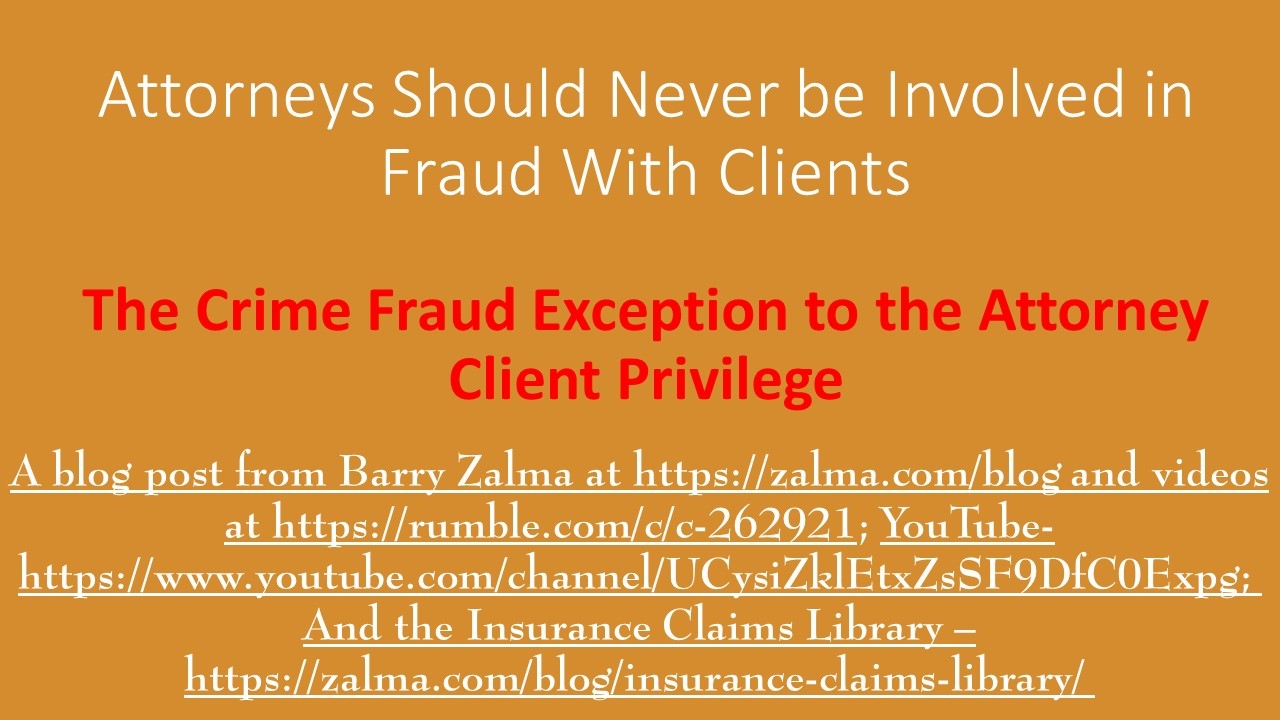-
News Feed
- EXPLORE
-
Pages
-
Groups
-
Events
-
Blogs
-
Marketplace
-
Offers
-
Jobs
-
Developers
Lawyers Should Never Join Clients in Crime

The Crime Fraud Exception to the Attorney Client Privilege
Read the full article at https://lnkd.in/giee-Sh and at https://zalma.com/blog plus more than 3800 posts.
In United States of America v. Aron Chervin, Et Al, No. 10 CR 918 (S.D.N.Y. 09/21/2011) an indictment involving multiple health insurance fraud perpetrators attempted to keep from their criminal trial wiretap conversations that seem to establish the crime.
By motion dated June 1, 2011, Defendant Michael Lamond (“Lamond”) moved to suppress nineteen telephone conversations between himself and Defendant Aron Chervin intercepted by the Federal Bureau of Investigation (“FBI”) pursuant to court-authorized wiretaps. Defendant argued that the communications are protected by the attorney-client privilege because Aron Chervin was a client.
The Defendants were charged with creating wholesale and retail shell corporations to perpetuate the fraudulent sale of Durable Medical Equipment (“DME”) to obtain inflated reimbursement from no-fault insurance providers, and financing their scheme through the sale of fraudulent receivables of the clinics to investors who benefitted from the inflated reimbursement generated by the fraud even though New York State prohibits medical professionals from sharing fees for medical services with non-medical professionals.
The privilege, however, is not an unbridled license which protects all communications between attorney and client. One of these exceptions to the privilege is commonly referred to as the crime-fraud exception.
Adapted from Zalma on Insurance Claims Part 108 -Second Edition at
Available as a Kindle book at https://www.amazon.com/Zalma-Insurance-Claims-Part-Second-ebook/dp/B07XZGCBVT/ref=tmm_kin_swatch_0?_encoding=UTF8&qid=1573662232&sr=8-15 or Available as a paperback https://www.amazon.com/Zalma-Insurance-Claims-Part-Second/dp/1693664828/ref=tmm_pap_swatch_0?_encoding=UTF8&qid=1573662232&sr=8-15
We are 100% funded for October.
Thanks to everyone who helped out. 🥰
Xephula monthly operating expenses for 2024 - Server: $143/month - Backup Software: $6/month - Object Storage: $6/month - SMTP Service: $10/month - Stripe Processing Fees: ~$10/month - Total: $175/month
- Art
- Causes
- Crafts
- Crime
- Dance
- Drinks
- Film
- Finance
- Fitness
- Food
- Games
- Gardening
- Health
- Home
- Literature
- Music
- Networking
- Paranormal
- Other
- Politics
- History
- News
- Party
- Science
- Religion
- Shopping
- Sports
- SyFy
- Politically Incorrect
- Philosophy
- Theater
- Technology
- Wellness



